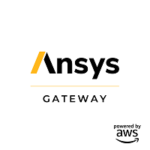With increased global competition and rising customer expectations, industrial engineers are under incredible pressure to lower their expenses while maintaining quality and performance. To overcome these challenges, they are transforming their workflows by bringing the physical and digital worlds together. Engineering simulation….
@HPCpodcast: Former AWS Sustainability VP on the State of Decarbonization in HPC and IT
The growing imperative of ESG- and carbon-related issues in the HPC industry – and in IT generally – is the topic of this week’s @HPCpodcast episode (sponsored by Lenovo). Shahin and Doug speak with Adrian Cockcroft, an analyst colleague of Shahin’s at OrionX and former vice president of sustainability architecture at Amazon Web Services, where he helped customers apply sustainability practices to their businesses. The good news shared by Adrian is that Big Tech companies and IT in general are decarbonizing more effectively than had been expected a few years ago. Even as systems become denser and hotter, data centers increasingly are adopting renewable energy sources, liquid cooling and other measures that reduce usage of carbon-based energy sources. He tells us that on a per-watts basis, the IT industry has plateaued – though, of course, total watts consumed continues to climb.
Interview: Ansys Talks CAD/CAE in the Cloud and Ansys Gateway Powered by AWS
In this interview with Jane Trenaman, VP of portfolio product management at Ansys, she discusses the growing importance of the cloud for customers using Ansys engineering simulation and CAD/CAE software and highlights the company’s partnership with AWS and the launch of Ansys Gateway….
AWS Adopting HVO to Decarbonize Data Centers in Europe
March 20, 2023 — Amazon Web Services said today it has begun transitioning to hydrotreated vegetable oil (HVO) to power backup generators at its data centers in Europe, with sites in Ireland and Sweden among the first to make the switch. Backup generators are used at data centre sites to provide back up power in […]
Cognigy Joins AWS Independent Software Vendor Accelerate Program
DÜSSELDORF & SAN FRANCISCO — Conversational AI company Cognigy announced today it has been selected to participate in the Amazon Web Services (AWS) Independent Software Vendor (ISV) Accelerate Program, a co-sell program for AWS Partners. Cognigy’s acceptance into the AWS ISV Accelerate Program enables the company to collaborate more closely with the AWS organization to […]
AWS Announces Water Positive Commitment by 2030
Nov. 28, 2022 — LAS VEGAS– Today at AWS re:Invent, Amazon Web Services, Inc. (AWS), an Amazon.com, Inc. company (NASDAQ: AMZN), announced it will be water positive (water+) by 2030, returning more water to communities than it uses in its direct operations. The company also announced its 2021 global water use efficiency (WUE) metric of 0.25 […]
Agnostiq Announces Covalent Support for HPC on AWS
TORONTO, Nov. 9, 2022 — Agnostiq, Inc., a Toronto-based high-performance computing (HPC) startup, today announced a new release of its open-source workflow orchestration platform, Covalent, which now supports Amazon Web Services, Inc. (AWS) resources such as AWS Lambda, Amazon Elastic Container Service (Amazon ECS), Amazon Elastic Compute Cloud (Amazon EC2), AWS Batch, and more. Covalent is […]










